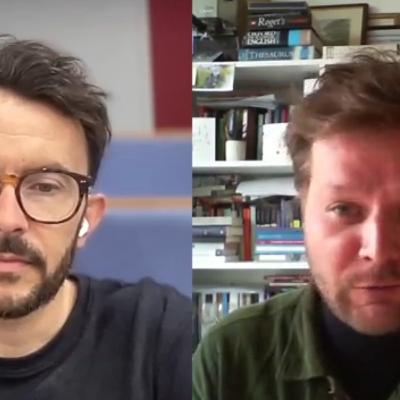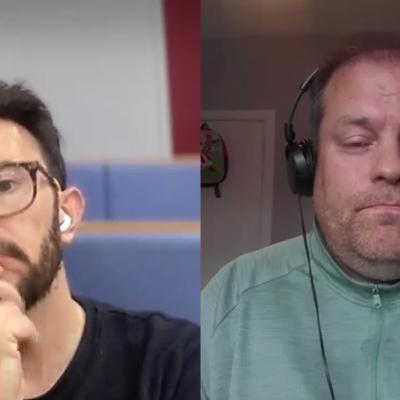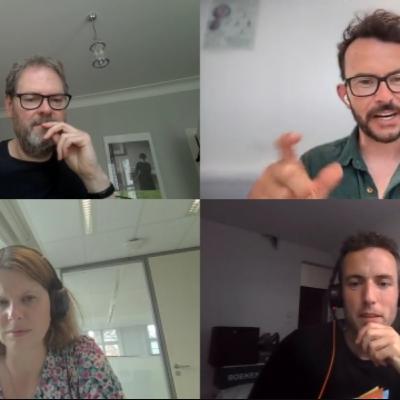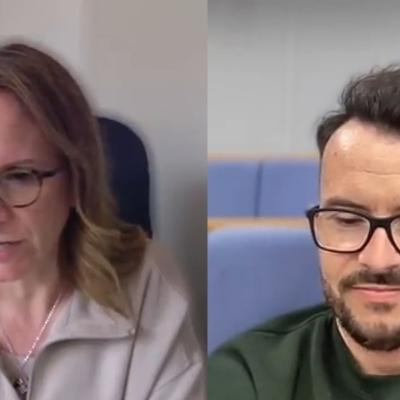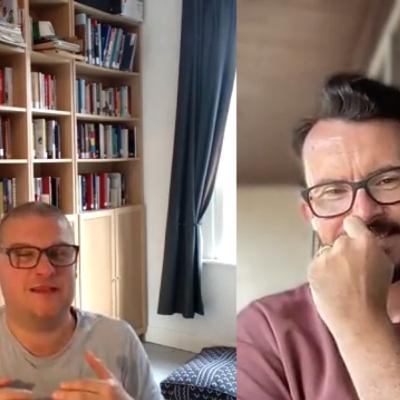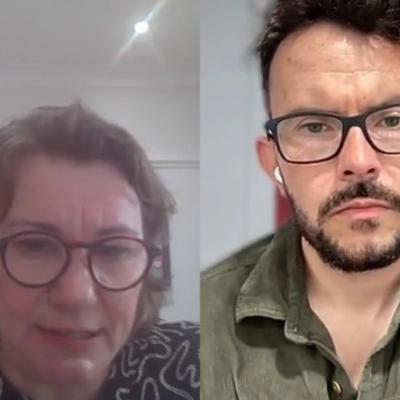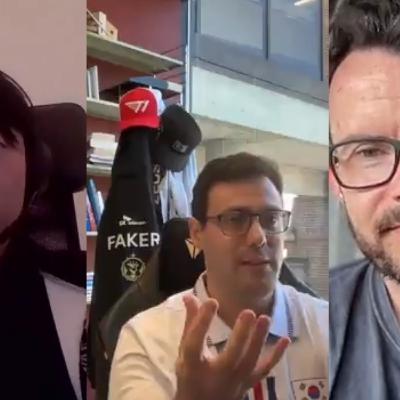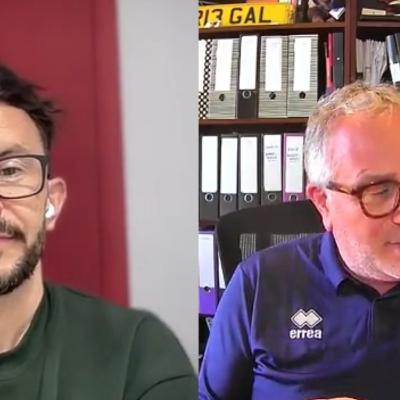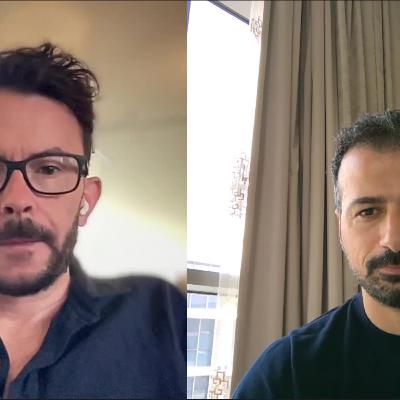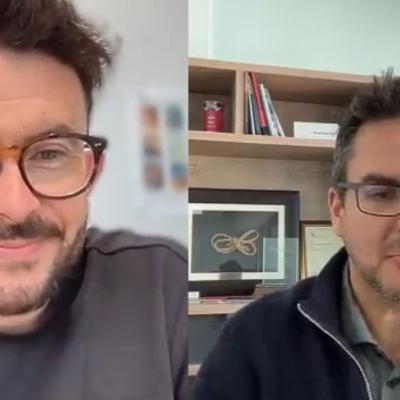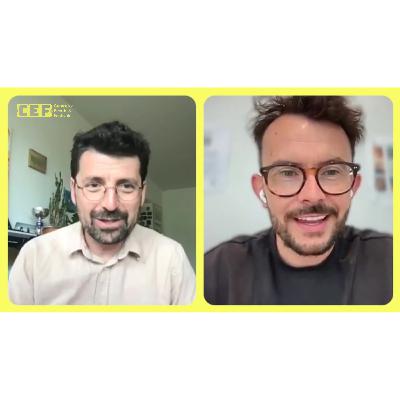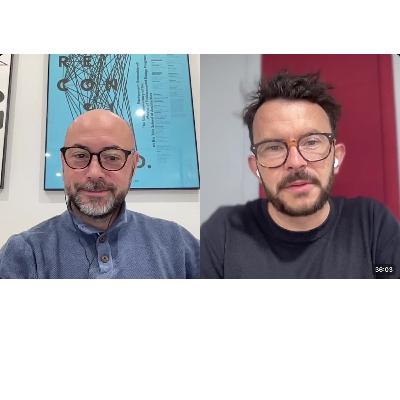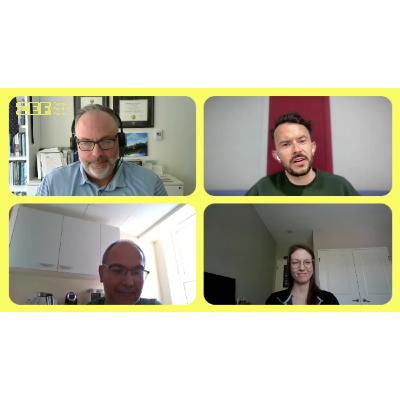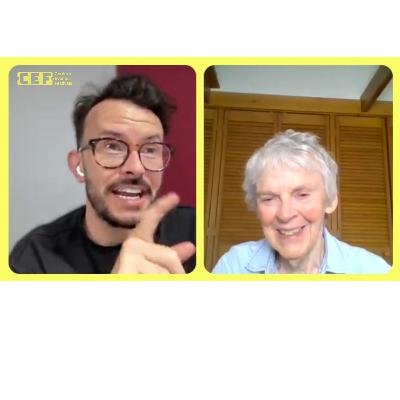Discover CEF's Podcast: 'Inside Events'
CEF's Podcast: 'Inside Events'

CEF's Podcast: 'Inside Events'
Author: Centre for Events & Festivals
Subscribed: 0Played: 1Subscribe
Share
© Centre for Events & Festivals
Description
CEF’s podcast ‘InsideEvents’ invites inspiring people and thought leaders to talk about hot topics; cutting-edge research and science; share stories of success and failure; and interrogate some of the pressing issues and biggest challenges we face across the event and festival industry.
31 Episodes
Reverse
An electric event atmosphere can’t be manufactured—it emerges organically from rituals, participation, and shared emotion. Yet too often, organisers mistake spectacle for atmosphere, investing in grand visuals and pyrotechnics while overlooking what truly makes events memorable and meaningful. In this episode, we unpack why fans are not passive consumers but co-creators of atmosphere before, during, and long after an event ends. From fan traditions and local culture to inclusive design choices and city-wide activations, authentic atmospheres are built, not bought. We explore how event organisers can foster the conditions for collective energy to flourish—bridging the gap between inside the venue and the wider urban experience. By prioritising participation, belonging, and emotional connection, organisers can create events that leave lasting impressions on audiences, cities, and communities alike, turning one-off moments into shared cultural memories that resonate long after the final whistle.
For millions living in unrecognised or contested regions, football offers more than sport—it’s a powerful tool to assert identity, belonging, and visibility beyond the boundaries of statehood. In this episode of Inside Events, we explore the role of the Confederation of Independent Football Associations (CONIFA), which provides vital platforms for communities excluded from mainstream global sporting systems like FIFA. Despite claims of neutrality, these tournaments are inherently political, revealing how sport intersects with contested nationhood and the struggles of marginalised communities seeking recognition. Hosting location also matters: events in global cities like London amplify visibility, while those in disputed territories often remain invisible to international audiences. We discuss how leaders, policymakers, and organisers can build pathways, partnerships, and policies that move beyond symbolic inclusion towards tangible, real-world impact. This episode sheds light on how football becomes a stage for identity, power, and belonging in a fragmented world.
Despite growing expectations for events to deliver lasting legacies, most organisers still rely on economic metrics while overlooking the harder-to-measure social outcomes that matter most to communities. In this episode, we explore how Flanders is pioneering a more evidence-based, co-created approach to embedding social impact into event planning from the outset. By using Theory of Change models and adapting proven tools from other policy sectors, Flanders is redefining how events plan, measure, and communicate their broader societal contributions. The conversation highlights why overpromising outcomes erodes trust and why managing expectations through credible, evidence-based planning is critical. We also tackle the need for honest evaluation, recognising both positive legaciesand negative consequences, including environmental and social costs often ignored in headline reporting. This episode offers practical insights for event professionals, policymakers, and researchers seeking to design more accountable, people-centred events.
Sustainability has become a central promise of many events, yet new research reveals that spectators often overlook or misinterpret organisers’ efforts. Audiences tend to recognise only the most visible, environmental signals—like recycling bins or renewable energy use—while social and economic impacts often go unnoticed. What counts as a meaningful sustainability initiative also depends heavily on local context; what resonates with one community may feel routine or irrelevant in another. Adding to the challenge, fragmented messaging frequently dilutes impact, leaving audiences confused or disengaged. To create real change, event organisers must rethink their communication strategies: simplify the narrative, prioritise core sustainability goals, and make actions visible, tangible, and locally relevant. By aligning messaging with audience expectations and context, events can move beyond box-ticking exercises to foster authentic engagement, inspire behavioural change, and deliver sustainability outcomes that truly resonatewith spectators and stakeholders alike.
The Island Games tell a remarkable story of community, identity, and resilience in global sport. In this episode, Dr. Michael Duignan speaks with Dr. Matt McDowell to explore how this unique multi-sport competition, founded in 1985 on the Isle of Man, has grown from a local tourism initiative into a complex international event involving more than 20 island communities. We trace the Games’ origins, their cultural and political significance, and the tensions between grassroots ethos and the demands of modern event governance. Matt reveals how the Games give smaller territories visibility on the world stage, foster community pride, and produce elite athletes, while also facing financial, logistical, and sponsorship challenges. From the Falklands to Greenland, we uncover how place, identity, and participation shape each edition. This is a fascinating case study for event managers, policymakers, and researchers seeking to create authentic, community-driven sporting experiences.
Too many events promise social impact but fail to plan, measure, or deliver it in meaningful ways. In this episode, we explore what it truly takes to create lasting event legacies that go beyond short-term economic gains. The conversation focuses on shifting ownership to local communities, investing in outcomes that people genuinely care about, and rethinking how we define success. Rather than focusing solely on GDP boosts or tourist numbers, wellbeingshould sit at the heart of legacy planning. We discuss how smaller, community-led events can create profound social ripples when designed with inclusion and belonging in mind, and why better knowledge transfer is key to scaling what works nationally and globally. With the right data, collaboration, and intentional design, events can move from performative promises to delivering transformative, people-centred impacts that endure long after the crowds go home.
Esports has exploded into a $2 billion global industry, attracting over 500 million spectators worldwide and offering the International Olympic Committee (IOC) unprecedented opportunities to connect with younger, digitally native audiences. Yet the integration of esports into the Olympic Games remains complex and contested. Unlike traditional sports, esports titles are privately owned, meaning game publishers control competition access, formats, and rights—creating major legal, cultural, and governance challenges for Olympic inclusion. While esports could help the Olympics boost youth engagement, reduce infrastructure costs, and modernise competition formats for a global digital era, significant risks remain. Without careful governance reform and authentic collaboration with gaming communities, the IOC faces the danger of alienating both esports fans and traditional Olympic stakeholders. This episode explores whether the convergence of esports and the Olympics represents an obvious opportunity for innovation or a hopeless mismatch between two fundamentally different worlds.
The 2022 FIFA World Cup in Qatar wasn’t just about football—it became a global lightning rod for debates on corruption, governance, and ethics in sport. In this episode, Dr. Michael Duignan speaks with Dr. Christina Philippou, whose research examines FIFA’s governance reforms and whether scandals can spark meaningful change. Together, they unpack the complex story behind Qatar’s controversial bid, the bribery allegations that reshaped FIFA’s leadership, and the compliance reforms that followed—including the introduction of risk registers, transparency measures, and a sport-wide compliance handbook. But have these reforms truly changed FIFA, or has progress stalled? Christina explores the structural issues that enable corruption, the role of sponsors and governments in applying pressure, and what independent oversight could look like. Essential listening for anyone interested in sports governance, institutional accountability, and the future of mega-event hosting.
In this episode, Dr. Michael Duignan speaks with Mark Briegal, Chair of Archery GB, to explore how archery events go far beyond competition to deliver powerful benefits for health, wellbeing, and community connection. Archery GB’s mission, “Enriching Lives Through Archery”, shapes how the sport creates inclusive spaces where everyone—from beginners to Olympians—can thrive. Mark shares stories of mental and physical transformation, from para-athletes rebuilding confidence to neurodiverse individuals finding focus and belonging. The discussion highlights how archery fosters mindfulness, encourages community engagement, and promotes intergenerational inclusivity by bringing together diverse groups on the same shooting line. We also explore Archery GB’s innovative initiatives designed to broaden access and participation. This episode offers insights into how sport can connect people, enhance wellbeing, and build inclusive communities—with lessons applicable far beyond archery itself.
In this episode, Dr. Michael Duignan speaks with Dr. Bachar “Bash” Kabalan, an expert in crowd dynamics, to unpack the science behind how people move, interact, and sometimes collide in mass gatherings. From music festivals and sports stadiums to religious pilgrimages and city fan zones, understanding crowd behavior is vital not just for safety but for designing better event experiences. Bash explains the principles that govern crowd flows, debunks common myths around “stampedes,” and explores how mathematical models, real-time monitoring, and agent-based simulations can predict and prevent dangerous situations. The discussion introduces the 3S model—safety, security, and service—and highlights the challenge of balancing protective measures with creating enjoyable, immersive experiences. Drawing on examples from the Hajj, the Paris 2024 Olympics, and major festivals, this episode offers practical insights for event professionals, city planners, and safety managers working at the intersection of crowds, space, and experience.
In this episode, Dr. Michael Duignan speaks with Dr. Brendan Knott to unpack the transformative power of the 2010 FIFA World Cup in reshaping South Africa’s global image. Once viewed with skepticism, South Africa leveraged the tournament to project a new narrative of pride, unity, and capability on the world stage. Brendan shares insights from his extensive research, exploring how strategic branding, media management, stakeholder alignment, and community mobilisation helped the nation harness the event’s potential. From football Fridays and youth engagement programmes to cross-sector partnerships between government, business, and media, the conversation reveals the deliberate actions that underpinned the World Cup’s branding success. The discussion also tackles sportswashing, brand authenticity, and whether these lessons can be replicated by other emerging nations seeking to reposition themselves globally through mega-events. A must-listen for anyone interested in nation branding, event strategy, and legacy planning.
In this episode, I'm joined by Dr Claire Drakeley from the University of Northampton, whose work is reshaping how we understand decision-making in live event delivery. Drawing on her extensive industry experience and doctoral research, Claire explores the psychology and complexity behind real-time decisions made under pressure—where outcomes can impact safety, reputation, and the very fabric of the event industry. Rather than relying on instinct or experience alone, Claire is developing a new framework designed to make event decisions more transparent, accountable, and robust. We discuss why event decision-making has remained an under-researched area, the limitations of traditional models, and the importance of agility, simulation-based training, and ecological rationality. Whether you’re on the ground at a major venue, managing stakeholder expectations, or developing future policy, this conversation provides timely insights into building more professionalised and resilient decision-making practices across the events sector.
Why do the events that truly change lives, foster inclusion, and rebuild divided communities struggle hardest to survive? From the Edinburgh Festival Fringe to Derry’s City of Culture, cultural festivals have delivered powerful legacies—driving regeneration, strengthening social bonds, and projecting national values globally. Yet, while these festivals scramble for basic funding, governments continue to pour billions into mega sporting events with questionable long-term benefits. In this powerful critique, Shona McCarthy, former CEO of the Edinburgh Festival Fringe Society, challenges outdated event funding models. She calls for new success metrics, equitable investment, and cultural participation embedded in social policy. If policymakers are serious about real, people-centred legacy, the solution is clear: sustained investment in culture, creativity, and communities—not just concrete, stadiums, and fleeting spectacle.
The global events and festivals sector shapes public space, cultural identity, and social change—but academic voices often remain unheard outside university walls. In this candid discussion, George Bradley, media strategist for the Centre for Events & Festivals, explains why that needs to change. He argues that academics are trusted experts the public and media want to hear from—yet many hesitate to engage, unsure how to translate dense research into accessible, impactful narratives. Drawing on years of experience, Bradley offers practical advice: simplify your message, focus on relevance, and treat media conversations like real-world dialogue, not academic seminars. From op-eds and expert quotes to podcasts and social media, he highlights how strategic, authentic media engagement amplifies research, builds institutional reputation, and drives real-world impact—especially in applied fields like events and festivals. If scholars want to influence policy, public debate, and industry practice, now is the time to find their public voice.
Resistance to mega-events is no longer fringe — it is an organised, global movement reshaping how cities engage with the Olympic Games. Based on extensive research across ten Olympic cycles, this article presents a new theoretical framework that explains the evolution of community resistance, from street protests to subtle, everyday acts of defiance. Drawing on sociological theory and transnational case studies, the authors reveal how opposition emerges across the event lifecycle, fuelled by concerns over displacement, inequality, and democratic exclusion. Yet, resistance is not inherently destructive. When organisers engage with it seriously, it can become a catalyst for more equitable, credible, and community-driven events. As public trust declines and global activist networks grow, understanding and addressing resistance is no longer optional — it is essential for the survival and legitimacy of the mega-event model.
Beneath the spectacle of fireworks, opening ceremonies, and global fanfare lies a harder truth—mega-events reshape cities, but often at the expense of the very communities they claim to uplift. In this critical analysis, Dr Sven Daniel Wolfe exposes the hidden consequences of events like the Olympics, World Cups, and Expos, arguing that soft power is anything but soft. Behind the carefully curated images of unity and progress are patterns of urban exclusion, displacement, and authoritarian governance—even within democratic states. Drawing on global case studies, Wolfe reveals how Potemkin-style developments, superficial participation, and the illusion of sustainability mask deep social divides and long-term harm. If cities are serious about legacy, transparency, and inclusion, they must challenge the event industry’s seductive narratives—and confront the authoritarian tendencies that often accompany global spectacle. The time to demand accountability, resist exclusion, and rethink mega-events is now.
In this episode, we explore how pilgrimage events can offer more than just spiritual fulfilment—they can support physical, social, and emotional wellbeing. Focusing on Taiwan's famous Dajia Mazu pilgrimage, our guest discusses how this iconic event blends religious tradition with personal growth, community belonging, and even recovery from life’s challenges. Drawing on the Centre for Health Promotion (CHP) model and bottom-up spillover theory, we unpack how the pilgrimage fosters wellbeing through three key dimensions: physical challenge, social connection, and spirituality. Intriguingly, even non-religious participants—especially those seeking reflection or emotional renewal—report significant psychological benefits. We also reflect on practical recommendations for organisers, from better supporting first-time attendees to creating spaces for both spiritual and secular engagement. Whether you're an event organiser, researcher, or curious listener, this conversation reveals how pilgrimage events can be reimagined as platforms for holistic wellbeing and social connection, while honouring their sacred roots.
The 1936 Berlin Olympics provided the world’s first systematic blueprint for using global sporting events as instruments of soft power, propaganda, and image management. Through spectacle, architecture, and ritual, Nazi Germany constructed an alluring but misleading narrative of modernity and unity—while concealing oppression and persecution. Nearly a century later, this model persists. From Beijing 2008 to Qatar 2022, mega-events continue to project curated national images, often masking uncomfortable truths such as human rights abuses, social displacement, or geopolitical ambition. This podcast critically examines how both authoritarian and democratic hosts exploit spectacle as a tool of political storytelling. It argues that without greater transparency, accountability, and protection for dissenting voices, global events risk becoming sophisticated instruments of manipulation, not celebration. Understanding the enduring influence of Berlin 1936 is essential for ensuring future events serve society—not just state agendas.
Does elite sport truly inspire everyday people to get more active? In this episode, Dr Mike Duignan speaks with Dr Georgia Teare, Dr Girish Ramchandani, and Dr Luke Potwarka about their recent article, The Trickle-Down Illusion, based on UEFA Euro 2020. Using comparative data from across 11 European host nations, they critically assess the widely held belief that mega-events boost grassroots sport participation. Their findings challenge the assumption that symbolic nationalism, athlete success, or event visibility alone translate into widespread community engagement. Instead, the discussion reveals how fragmented governance, structural inequalities, and the absence of coordinated legacy strategies continue to undermine participation outcomes—especially among underrepresented groups. From pandemic disruptions to policy shortfalls, the episode unpacks why the 'trickle-down effect' remains more myth than measurable impact, and what must change if sport events are to deliver genuine social return. A vital listen for policymakers, sport managers, and future event bidders.
Behind the glittering spectacle of the Olympic Games lies a complex and troubling reality. In this episode, Professor Helen Jefferson Lenskyj, a leading critic of the Olympic movement, exposes how the so-called “Olympic industry” masks corruption, authoritarianism, and human rights abuses beneath rhetoric about unity, peace, and sporting excellence. We unpack how host city selection is dominated by opaque deals and political influence, how displaced communities and marginalised groups pay the price, and why public trust in the Games is collapsing. Lenskyj argues that rather than fostering global solidarity, the IOC has become an unaccountable, profit-driven organisation that resists meaningful reform. From Beijing to Brisbane, from soft power to sportwashing, this conversation reveals the contradictions at the heart of the modern Olympic project — and considers alternative models rooted in joy, inclusivity, and genuine social justice. Is it time to rethink global sport altogether?


